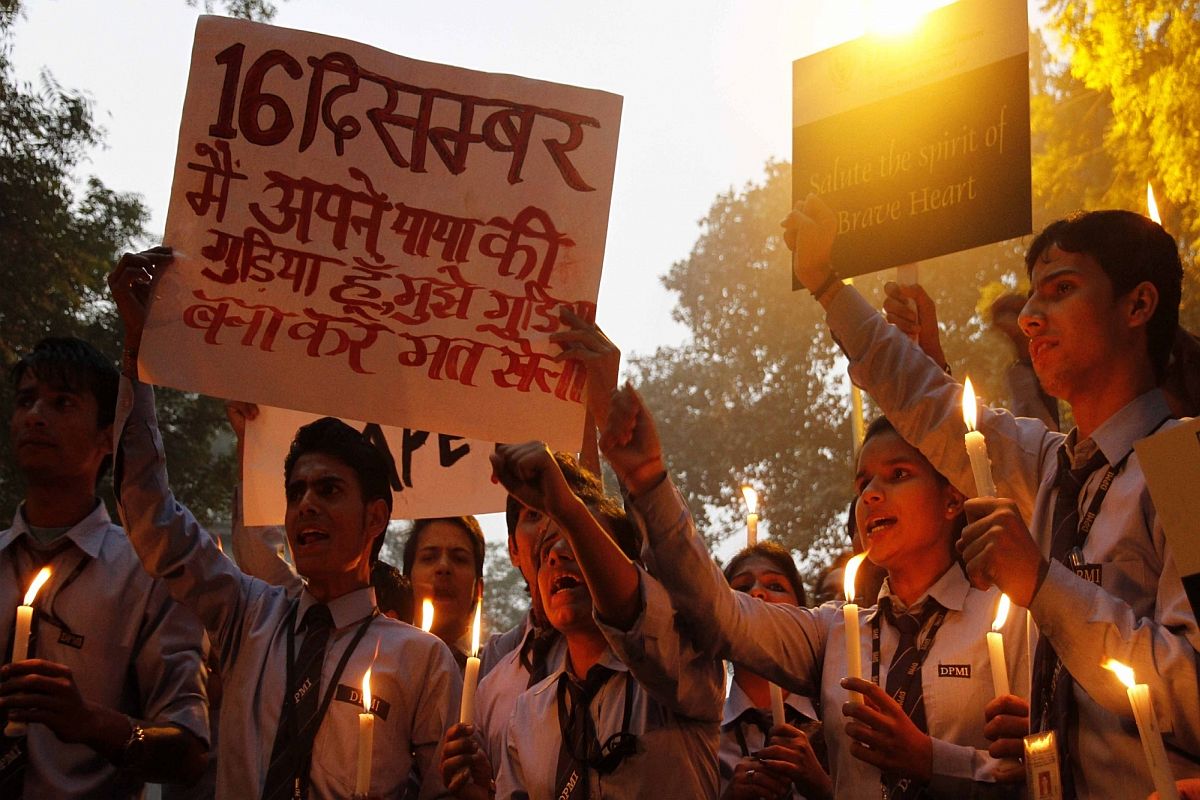SC seeks number of FIRs registered in instant triple talaq cases
Triple talaq ceased to exist on August 22, 2017, when the Supreme Court declared it void.
The Centre moved the Supreme Court seeking modification of its January 2014 judgement that didn’t specify deadline for availing legal remedies.

A 23-year-old paramedic student, who came to be known as Nirbhaya, was gang-raped on the intervening night of December 16-17, 2012 inside a running bus in south Delhi by six persons and severely assaulted before being thrown out on the road. (File Photo: IANS)
Amid furore over delay in the execution of Nirbhaya culprits, the Ministry of Home Affairs on Wednesday moved an application before the Supreme Court praying for modification of the “convict-centric” guidelines and to make them “victim-centric” to reinforce the people’s faith in the rule of law.
This comes as the Centre has been facing heat over the procedural delay in execution of death sentence of four convicts in the Nirbhaya gangrape and murder case.
Advertisement
The Centre moved the Supreme Court seeking modification of its January 2014 judgement that didn’t specify deadline for availing legal remedies.
Advertisement
According to a report in IANS, it said that the convicts, in heinous crimes, under the garb of Article 21 were taking the judicial process for a ride.
The MHA also urged the apex court to fix a time limit for death-row convicts to file curative petition, that the mercy petition should be filed within 7 days of issue of death warrant, and execution be carried out within 14 days of rejection of the mercy plea.
The Supreme Court through a common judgment and order on January 21, 2014 had laid down certain guidelines with respect to the procedure to be followed for filing mercy petitions, filed either by the convicts awarded death sentence or their family members or others, like the People’s Union for Democratic Rights (PUDR), and execution of the death sentence keeping in account the interest of the death-row convicts.
“These guidelines, however, don’t take into account an irreparable mental trauma, agony, upheaval and derangement of the victims and their family members, the collective conscience of the nation and the deterrent effect, which the capital punishment intends to make,” the Home Ministry argued.
The urgent appeal comes days after a fresh death warrant was issued by Delhi’s Patiala House Court against the four convicts in the 2012 Nirbhaya rape and murder case, who will now be executed at 6 am on February 1.
According to a January 7 order, the convicts — Vinay Sharma (26), Mukesh Kumar (32), Akshay Thakur Singh (31) and Pawan Gupta (25) — who were found guilty in the rape and murder of a Delhi medical student, were to be hanged at 7 am on January 22.
One of the convicts, Mukesh had then on January 14 moved the Delhi High Court challenging the death warrant issued against him.
Following this, the Delhi government and prison authorities informed the High Court on Wednesday that the execution of the four convicts in the Nirbhaya gangrape and murder case cannot take place on January 22 in view of the mercy plea.
After being rejected by the Delhi government as well the MHA in a hurried process, the mercy plea was rejected by President Ram Nath Kovind on January 17.
As per law, there should be a 14-day gap between the rejection of a death-row convict’s mercy petition and his execution. The new execution date is exactly 14 days from the date of rejection of plea.
The 23-year-old victim, who came to be known as Nirbhaya, was brutally gangraped and tortured on December 16, 2012, inside a running bus in south Delhi by six persons, which later led to her death. All the six accused were arrested and charged with sexual assault and murder.
Four of the convicts were sentenced to death by a trial court in September 2013, and the verdict was confirmed by the Delhi High Court in March 2014 and upheld by the Supreme Court in May 2017, which also dismissed their review petitions.
The fifth accused was a minor and appeared before a juvenile justice court, while a sixth accused committed suicide in Tihar Jail.
Advertisement